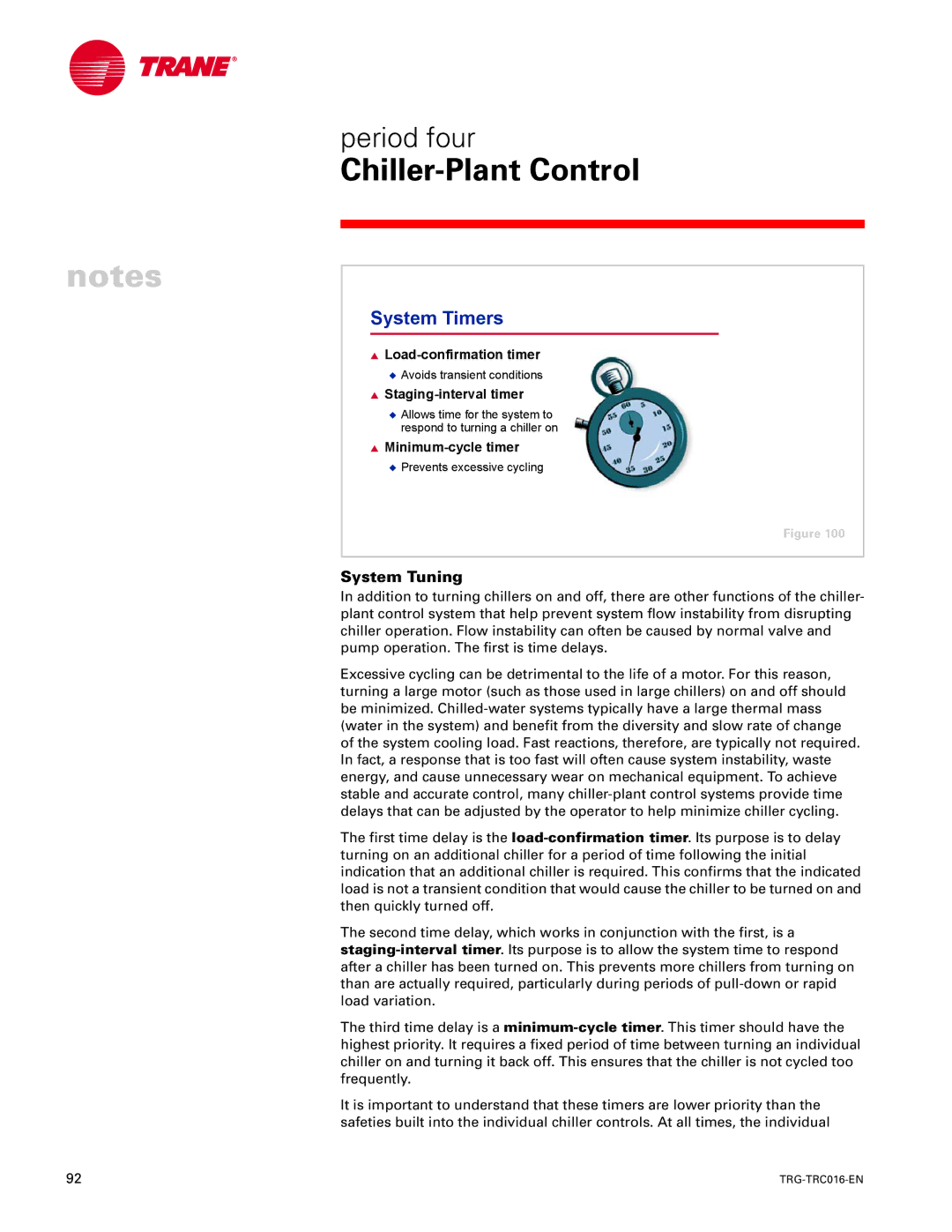period four
Chiller-Plant Control
notes
System Timers
▲Load-confirmation timer
◆Avoids transient conditions
▲Staging-interval timer
◆Allows time for the system to respond to turning a chiller on
▲Minimum-cycle timer
◆Prevents excessive cycling
Figure 100
System Tuning
In addition to turning chillers on and off, there are other functions of the chiller- plant control system that help prevent system flow instability from disrupting chiller operation. Flow instability can often be caused by normal valve and pump operation. The first is time delays.
Excessive cycling can be detrimental to the life of a motor. For this reason, turning a large motor (such as those used in large chillers) on and off should be minimized. Chilled-water systems typically have a large thermal mass (water in the system) and benefit from the diversity and slow rate of change of the system cooling load. Fast reactions, therefore, are typically not required. In fact, a response that is too fast will often cause system instability, waste energy, and cause unnecessary wear on mechanical equipment. To achieve stable and accurate control, many chiller-plant control systems provide time delays that can be adjusted by the operator to help minimize chiller cycling.
The first time delay is the load-confirmation timer. Its purpose is to delay turning on an additional chiller for a period of time following the initial indication that an additional chiller is required. This confirms that the indicated load is not a transient condition that would cause the chiller to be turned on and then quickly turned off.
The second time delay, which works in conjunction with the first, is a staging-interval timer. Its purpose is to allow the system time to respond after a chiller has been turned on. This prevents more chillers from turning on than are actually required, particularly during periods of pull-down or rapid load variation.
The third time delay is a minimum-cycle timer. This timer should have the highest priority. It requires a fixed period of time between turning an individual chiller on and turning it back off. This ensures that the chiller is not cycled too frequently.
It is important to understand that these timers are lower priority than the safeties built into the individual chiller controls. At all times, the individual

